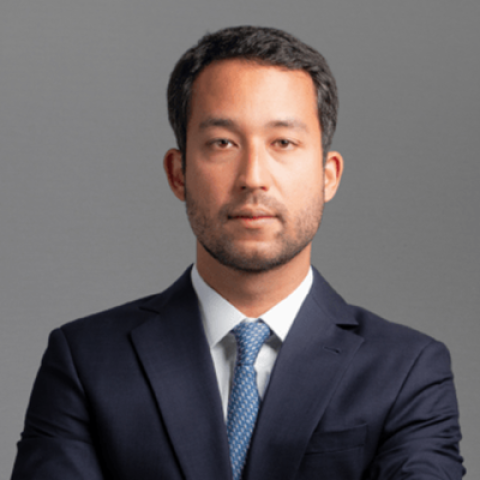CVM Enters the Field
On August 21, 2023, the Securities and Exchange Commission (“CVM”) published Guidance Opinion No. 41 (“Opinion”), which deals with Football Corporations (“SAF”) and their dialogue with – and access to – securities market.
The Opinion seeks to guide and signal possible paths for SAFs that want to register as publicly-held companies and access the capital market, in addition to presenting the CVM's interpretations on the application of Law No. 6,404/1976, the Brazilian Corporation Law (“LSA ”), and Law No. 6,385/1976 (“CVM Law”), to topics involving Law No. 14,193/2021 (“SAF Law”).
This document, paradigmatic for the Autarchy and for Brazilian sport, ranges from topics related to the formation of social capital, through issues such as power of control and corporate governance, to directions related to market access by SAFs.
The initiative, unprecedented in Brazil, sheds light on the football market, pointing to possibilities for the development and maturation of an activity with immeasurable (social and economic) potential.
The highlights of the Opinion, in summary form, are the following:
Constitution and Formation of Social Capital
In addition to the 3 ways of establishing SAFs listed in art. 2 of the SAF Law, the Authority highlighted the fourth constitutive modality, provided for in art. 3rd of the same Law: the drop down. This alternative, which is possibly the most used, occurs when the associative club (or original legal entity) pays up its (subscribed) portion of the SAF's share capital through the transfer of assets related to football activity, such as name, brand, badges, symbols, properties, assets, fixed and mobilized assets, including registrations, licenses, contracts, federative, economic and sporting rights over athletes, as well as the respective economic repercussion[1].
The drop down represents a replacement of equity elements, through which the club transfers its assets (in this case, to SAF) and receives in exchange the equivalent in equity participation (a certain number of shares issued by SAF, in this case). This is a very common reorganization technique in the world of mergers and acquisitions (or “M&A”) and expressly provided for in the SAF Law.
The Opinion also highlights the reinforcement of the systemic health of the procedures for verifying the reality of the patrimonial contribution transferred by the holder of the rights to the SAF. In addition to the mandatory evaluation by experts or specialized companies, the general rule provided for in art. 8th of the LSA, the CVM advises market agents who advise on the creation of SAFs to observe not only the applicable accounting standards, but also to hire auditors registered with the CVM, in order to evaluate the assets and liabilities that form the equity transferred via drop down or split.
Corporate Governance
The SAF Law brings its own specificities regarding governance, such as the prohibition that the controlling shareholder of a SAF holds, directly or indirectly, a stake in another SAF (art. 4 of the SAF Law). Furthermore, the shareholder holding 10% or more of the voting or total capital of a SAF, even without controlling it, if they have a stake in another SAF, will not have the right to voice or vote in both companies. These are rules not provided for in the LSA, so they only apply to the corporate subtype of SAF.
The CVM, in this context, recognizes and advises that SAFs whose securities are admitted to trading on the market adopt control measures to comply with such requirements, signaling the convenience of establishing, for example: internal monitoring systems and submission requirements periodic declaration of compliance by SAF shareholders.
These specificities overlap or complement, as appropriate, the LSA rules applicable to public limited companies in general. Therefore, the following obligations are also applicable to SAFs that organize themselves as publicly-held companies, among others established in corporate legislation and CVM regulations: (i) prohibition on the accumulation of positions of Chairman of the Board of Directors and Chief Executive Officer, except the exception for smaller companies (art. 138, §§3 and 4 of the LSA); (ii) mandatory participation in the Board of Directors of independent members (art. 140, §2 of the LSA); (iii) regular sending of the Reference Form; and (iv) preparation of communications to the market or relevant facts.
It is undeniable that, in terms of governance aspects, even with the requirements of the SAF Law, the IPO will represent – even if absent, at the beginning, the intention to trade shares on the stock exchange – a “positive governance shock”, the result of the general requirements (and more rigorous, from the perspective of company governance) that the LSA and the CVM impose on agents who are permitted to access resources from popular savings, via the capital market.
Access to the Capital Market
The connection between takers and adopters, an essential function of the capital market, is the cornerstone of the viability and capture of resources, generating benefits for the community. Ally this with an activity that, at the same time, consists of the most popular sport in the world, has significant social repercussions and capacity for insertion/integration, and represents a promising business with great economic potential (which, not everyone, moves great somas of resources), can represent transformative effects in the country.
In this sense, and to expand the avenues of access to resources, available to the SAFs, Resolution CVM 160 allows companies not registered with the CVM to carry out public offerings of equity securities intended only for professional investors. These debts are not included, please apply in case of SAFs. A condition for the issuers of securities to be possible, in regra, to reach non-professional investors and capture resources publicly is the registration perante to CVM (subtracting all the applicable regulatory framework).
Apparently, CVM highlights some types of securities that can be issued by SAFs, among them:
- Debentures-Fut: Type of debenture regulated by art. 26 of the SAF Law and intended only for this corporate subtype. In addition to the specificities present in the SAF Law, the provisions of the LSA applicable to debentures in general apply to fut debentures. When publicly offered or admitted to trading on the market, the SAF must also comply with all CVM regulations applicable to the issuance of debentures;
- Debentures: As long as the applicable legal and regulatory requirements are met, SAFs can issue traditional debentures, in which case the content directed to fut debentures will not apply;
- Crowdfunding: Investment that consists of raising funds through a public offering for the distribution of securities by an issuer that is a small business company (annual gross revenue of up to R$40 million reais) through an electronic, regulated, participatory investment platform by CVM Resolution No. 88;
- Equity Investment Funds: Provided that applicable regulatory requirements are met, shares issued by SAFs that are publicly-held companies and admitted to securities trading on the capital market may be present in the portfolio/compose the Equity Investment Fund portfolio ;
- Participation Investment Funds (FIPs): Common in the private equity and venture capital sectors, the CVM suggests the possibility of using FIPs to concentrate and coordinate the participation of investors in SAFs, including under the investment thesis of professionalizing management of the club, in order to allow its shareholders to become indirect investors in SAF. In this modality, the FIP must obtain the necessary registrations and authorizations from the CVM, and not the SAF. The structure can be useful for situations in which SAF is not yet ready to become a public company – which is the current reality for most Brazilian football teams. The CVM warns, however, that, given the risks involved in this type of investment, under current regulations, only qualified investors can acquire shares in FIPs;
- Real Estate Investment Funds (FII): Funds that aim to invest in real estate projects can be used in the context of SAFs. It is possible to think, for example, of an operation in which SAF, together with other investors, structures an FII to facilitate projects such as construction or renovation of a stadium or training center (or other real estate asset of interest to SAF). In this scenario, SAF could acquire a portion of the shares or not, but FII shareholder investors could, as provided for in the Opinion, become indirect partners in the project, receiving rental income or even participation in other lines of revenue arising from exploration. of real estate assets allocated to the FII (such as box offices for games and events); It is
- Credit Rights Investment Funds (FIDC) and Securitization: SAFs can anticipate the receipt of credit rights held by them through assignment (at a discount) to FIDCs and securitization companies, with the respective certificates or shares distributed to investors in the capital market . Various receivables from SAFs could be anticipated, such as property rentals, revenue from participation in championships, naming rights, box office revenue and even player negotiation. Although the anticipation of receivables is not an unknown practice in the football market, it is reasonable to expect, as noted by the CVM, that its use based on the origination of credits by SAFs, and structured via FIDC, given the regulatory framework and other applicable requirements, be more attractive to the investing public, by providing transparency, security, etc.
Suitability, Transparency and Advertising
The Authority also expressed concern and highlighted topics such as (i) the duty of suitability – applicable to all intermediaries and those working in the securities distribution chain; and (ii) the obligations of transparency and publicity of acts carried out by SAFs that may access the capital market.
The concern regarding suitability relates to the suitability of the product offered to the investor's profile. This duty, in the case of SAFs, whose activity undeniably arouses passions – often encouraging decisions that are not necessarily the most rational – must be fulfilled with even greater rigor. The investor-fan's behavior may be legitimate, but professionals working in the distribution chain should not only explore their passionate side for the purpose of promoting the public offering. In other words: the appeal and impact of football, especially in a country like Brazil, is, without a doubt, a factor that contributes to its attractiveness and will probably encourage the development of products linked to SAFs; but this cannot override compliance with the rules imposed to protect the market and investors.
The CVM, in this sense, reinforces the requirement that calm and moderate language be used in distribution efforts, recommending that caution with promotional language be intensified. Furthermore, distributors must alert investors about investment risks and their main characteristics.
Finally, the CVM recognizes the challenge it will face in defining the information that must be disclosed to the market by SAFs. Although the provisions of CVM Resolution No. 44[2] are fully applicable, it cannot be ignored that football activity daily generates a significant amount of information, news, reports and rumors coming from both journalists and digital influencers, as well as fans. The CVM, understanding the peculiar context of SAFs, indicated that it does not expect its administrators to speak out before the market in reaction to any news or rumors, especially produced in a clearly sporting context, but reinforced that it will not fail to demand that they be carefully evaluated the acts and facts that may generate the effects provided for in art. 2nd of Resolution 44[3].
The Opinion, therefore, guides the path towards the maturation of the football market and SAFs. Not only the SAFs and, of course, Brazilian football itself benefit from this, but also the securities market and its investors, who now have access to a billion-dollar market[4], in which Brazil is globally and historically known – and which has been undeniably underexplored.
Do you want more information?
 Guilherme Setoguti
Guilherme SetogutiGuilherme Setoguti is specialized in litigation, arbitration and business laws.

